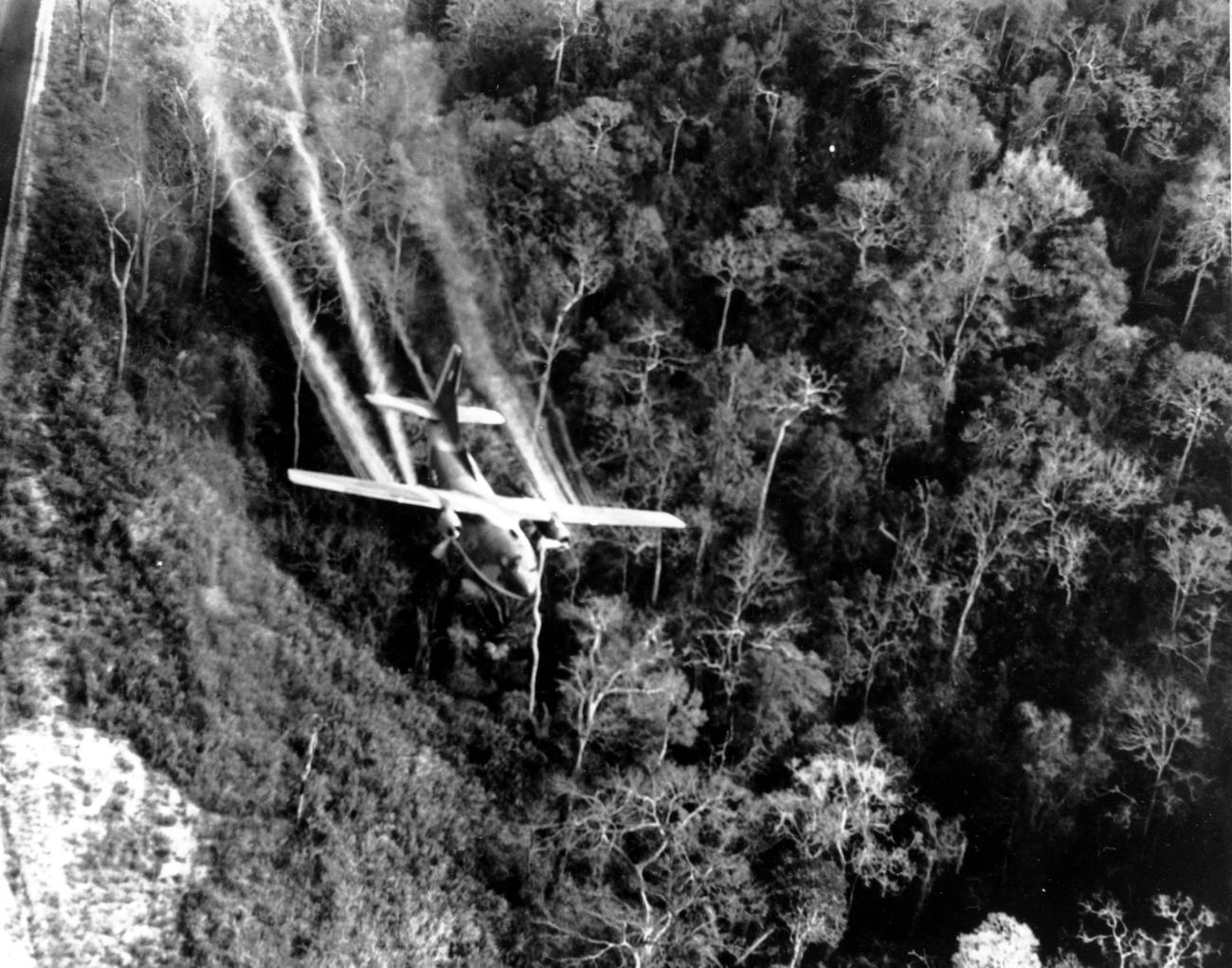
The Department of Veterans Affairs plans to expand eligibility for Agent Orange disability benefits to Vietnam-era veterans who served at 129 locations in the U.S. during specific time frames, as well as parts of Canada and India, officials announced Friday.
Ahead of a notice published Monday in the Federal Register, VA officials also said they plan to widen eligibility for veterans who were sickened by herbicides used after World War II in the Demilitarized Zone in Korea in the 1950s and in areas off the shores of Vietnam, Cambodia and Laos.
VA Secretary Denis McDonough said the move will make it easier for veterans who were exposed to the toxic defoliant to get benefits and care for service-connected conditions.
Read Next: 5 Marines Killed in California Helicopter Crash Identified as Families Grieve
“Our goal is to provide every veteran — of every era — with the VA health care and benefits they deserve, and this is another step in the right direction,” McDonough said in a statement released Friday.
The proposal would allow the VA to automatically extend presumptive status to veterans who develop an Agent Orange-related health condition from assignment to a location named on the Defense Department’s list of areas where tactical herbicides were tested, used or stored within specific dates.
It adds locations in 12 states within the U.S., as well as Kumbla, India, in 1945 and 1946, and Gagetown, New Brunswick, in Canada, in June 1966 and June 1967. It also creates broader timelines for other locations that include Cambodia, Thailand, Guam and Laos, based on the DoD’s 2019 list, which was published by the VA in 2020.
The states include Alabama, Arkansas, Florida, Georgia, Indiana, Maryland, Mississippi, Montana, New York, Tennessee, Texas and Utah, and dates that range from 1945 to 1977, depending on state and location.
The full list of the states and specific locations and times is available on the VA website, as is the list of overseas locations.
A presumption of exposure means that the VA automatically accepts a condition as tied to military service, lowering the requirement for the veteran to prove that their illness or injury is military related and allowing for a more streamlined course to receive benefits.
“The purpose of this regulatory change is to ensure consistency across VA adjudications, in accord with the most up-to-date information garnered by DoD,” VA officials wrote in the release.
The new rule codifies and defines some of the requirements on presumptive conditions listed in the Blue Water Navy Act and the PACT Act, both of which expanded benefits to veterans sickened by exposure to contaminants while deployed to combat operations.
It expands the territorial waters off Vietnam and other locations to include an island, Phu Quoc, that previously was omitted as automatically qualifying for benefits. It also would expand the dates of eligibility for veterans who served in the Korean Demilitarized Zone from April 1, 1968, to Aug. 31, 1971, to Sept. 1, 1967, through Aug. 31, 1971.
And it clarifies conditions that fall under the umbrella term of Parkinsonism, a health condition related to herbicide exposure, to include progressive supranuclear palsy, multiple system atrophy, corticobasal degeneration, vascular Parkinsonism and dementia with Lewy bodies.
According to the VA, the clarification is needed because claims processors may not understand that these conditions fall under the Parkinsonism condition.
As part of the Federal Register process, veterans, advocates and the general public have 60 days to comment on the proposal. VA officials said in the announcement that they welcome all input and all comments will be considered.
They acknowledged that they previously have received questions as to why the VA does not extend presumptive status to veterans who say that Agent Orange and other herbicides were used in locations not listed by the Defense Department, such as Panama and Okinawa.
But ultimately, VA officials said the department decided it was the best “course of action” to restrict their presumptive conditions status to the DoD list, which they described as a “living document and therefore may evolve.”
The Defense Department bases its list on criteria that includes the existence of official records such as government reports, forms, unit histories, shipping logs, contracts, scientific reports or photographs. The location must have been a DoD installation; land under control by the DoD; or a non-DoD location where service members were present during testing, application, transportation or storage.
“VA nevertheless welcomes all comments on this approach, or comments on
Panama and Okinawa specifically, during the comment period for this rulemaking,” officials wrote.
Veterans interested in filing an initial claim for a herbicide-related disability can visit the VA’s website, or use VA Form 21-526EZ, Application for Disability Compensation and Related Compensation Benefits. They also are encouraged to contact a veterans service organization, such as the American Legion, Disabled American Veterans, the VFW or others for help with the application process or contact their state or local veterans affairs offices.









